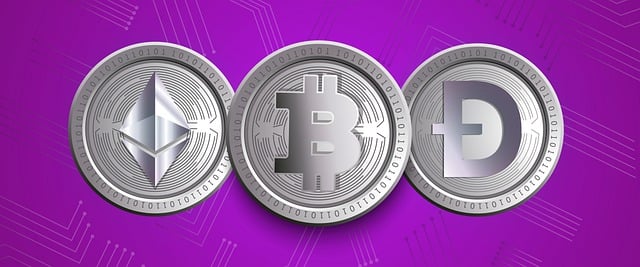Dogecoin, created as a joke in 2013, has evolved into a globally recognized cryptocurrency. Backed by Litecoin's blockchain, it stands out due to its unique branding and community-driven nature. While its legal status varies across countries, with some recognizing it as a financial asset and others restricting it, Dogecoin faces key regulatory challenges like AML/KYC rules and tax implications. Intellectual property rights protection is crucial for safeguarding the Dogecoin brand and fostering innovation. The rapid growth has led to legal disputes but also presents an opportunity for proactive regulation. Despite uncertainty, Dogecoin's resilient community and potential for financial inclusion make it a fascinating player in the cryptocurrency market.
“Unveiling the intricate legal landscape of Dogecoin, this comprehensive guide explores its remarkable journey from internet meme to a significant cryptocurrency. We delve into the global regulatory perspective, dissecting jurisdiction over Dogecoin transactions. The article scrutinizes tax implications for holders and offers insights on intellectual property rights within the ecosystem.
From litigation to predictions of Dogecoin’s future, we present a detailed analysis, equipping readers with essential knowledge about the legal considerations surrounding this digital asset.”
- Dogecoin's Rise: From Meme to Cryptocurrency
- The Legal Definition of Dogecoin
- Regulatory Perspective: Global Jurisdiction Over Dogecoin
- Tax Implications for Dogecoin Holdings and Transactions
- Intellectual Property Rights in the Dogecoin Ecosystem
- Litigation and Legal Disputes Involving Dogecoin
- The Future of Dogecoin: Legal Considerations and Predictions
Dogecoin's Rise: From Meme to Cryptocurrency

Dogecoin, created in 2013 as a joke based on the popular “Doge” meme, has evolved from internet curiosity to a significant player in the cryptocurrency market. What started as a lighthearted endeavor quickly gained traction among tech-savvy users and online communities. The coin’s unique branding and underlying blockchain technology, inspired by Litecoin, caught the attention of investors and enthusiasts worldwide.
This sudden surge in popularity propelled Dogecoin into the spotlight, challenging established cryptocurrencies like Bitcoin. Its widespread adoption and online community support have contributed to its stability and growth over the years. Today, Dogecoin is not just a meme; it represents a thriving ecosystem with dedicated developers, charitable initiatives, and a vibrant online presence, solidifying its place in the ever-changing legal and financial landscape of cryptocurrency.
The Legal Definition of Dogecoin

Dogecoin, often abbreviated as DOGE, is a cryptocurrency that has gained significant attention due to its unique origins and community-driven nature. Legally, Dogecoin is classified as a form of digital currency or virtual asset. Its definition varies slightly across jurisdictions but generally includes a decentralized digital token designed to act as a medium of exchange, similar to traditional currencies like the US dollar or Euro.
The legal landscape surrounding Dogecoin has evolved alongside the cryptocurrency market, with various countries adopting different regulatory approaches. This includes recognizing Dogecoin as a legitimate currency for tax purposes, setting guidelines for its use in financial transactions, and even integrating it into existing financial systems. Understanding these legal nuances is crucial for investors, traders, and enthusiasts to navigate the space effectively and ensure compliance with relevant regulations.
Regulatory Perspective: Global Jurisdiction Over Dogecoin

The regulatory landscape for Dogecoin, like many cryptocurrencies, is a complex web that spans global jurisdictions. As a decentralized digital asset, Dogecoin’s unique nature challenges traditional financial regulations. Each country has its own approach to governing cryptocurrency, with some embracing it as a legitimate form of payment and investment, while others remain cautious or even restrictive.
Regulatory bodies worldwide are navigating this new terrain, introducing various measures to protect consumers, prevent illicit activities, and ensure fair market practices. These include anti-money laundering (AML) and know-your-customer (KYC) rules, tax implications, and potential classifications as securities or commodities. The global community of Dogecoin enthusiasts and investors awaits the development of a consistent international regulatory framework for crypto assets like Dogecoin to foster a more unified and accessible market.
Tax Implications for Dogecoin Holdings and Transactions

Dogecoin, like any cryptocurrency, comes with its own set of tax implications that holders and users should be aware of. Since Dogecoin is considered a commodity or virtual currency by many tax authorities, gains or losses from holding or trading it are typically taxed as capital gains or losses. This includes any income generated through transactions, such as selling Dogecoin for fiat money or using it to purchase goods and services.
The complexity arises in tracking these transactions and accurately reporting them on tax returns. Taxpayers must keep detailed records of their Dogecoin purchases, sales, and trades, including dates, amounts, and costs. Many countries have specific guidelines and forms for reporting cryptocurrency income, and failure to do so properly can result in penalties and interest charges. As the legal landscape surrounding Dogecoin continues to evolve, it’s crucial for investors and users to stay informed about their tax obligations to avoid potential legal issues.
Intellectual Property Rights in the Dogecoin Ecosystem

In the dynamic world of cryptocurrency, Dogecoin has emerged as a unique and popular digital asset. As the Dogecoin ecosystem expands, understanding intellectual property rights (IPR) is crucial. IPR within this context encompasses trademarks, copyrights, and patents that protect various aspects of the Dogecoin brand and its associated content. For instance, the iconic “Doge” meme, often associated with Dogecoin, is protected under copyright law, ensuring its creators and the Dogecoin community are recognized for their contributions.
Moreover, as Dogecoin continues to gain mainstream attention, trademark regulations play a significant role in preventing unauthorized use of the name and logo. This legal framework ensures that the Dogecoin brand remains distinct and safeguards against potential confusion in the market. With the rapid growth of cryptocurrencies, the protection of IPR is essential for fostering innovation, maintaining brand integrity, and ensuring a robust legal environment around Dogecoin and other digital currencies.
Litigation and Legal Disputes Involving Dogecoin

The world of Dogecoin, like other cryptocurrencies, has not been immune to legal disputes and litigation. As the popularity of this meme-inspired coin grows, so do the complexities surrounding its regulation and ownership. Legal battles have emerged, particularly around issues of fraud, intellectual property rights, and tax implications. For instance, cases involving fraudulent investments or misappropriation of Dogecoin funds have come to light, with investors seeking justice and compensation.
These legal disputes highlight the need for clear guidelines and oversight in the cryptocurrency market. With Dogecoin‘s rapid evolution, regulators and legal experts are racing to keep pace, establishing precedents and frameworks that can effectively govern this digital asset while protecting users and fostering public trust.
The Future of Dogecoin: Legal Considerations and Predictions

The future of Dogecoin remains an intriguing prospect, especially with its growing popularity and community support. As a cryptocurrency, Dogecoin’s legal landscape is complex and ever-evolving. Regulatory bodies worldwide are still grappling with how to classify and govern digital currencies, leading to varying degrees of acceptance and oversight. This uncertainty could pose challenges for Dogecoin’s widespread adoption as a legitimate payment method. However, it also presents an opportunity for the coin to navigate and shape its regulatory environment proactively.
With its light-hearted nature and active community, Dogecoin has already shown resilience in the face of legal scrutiny. As more countries recognize cryptocurrencies, Dogecoin could become a pioneer in mainstream financial inclusion, offering a user-friendly alternative to traditional banking systems. Legal considerations will play a pivotal role in shaping this future, ensuring consumer protection while fostering innovation in the cryptocurrency sector.
Dogecoin’s journey from a viral meme to a significant cryptocurrency has presented unique legal challenges. As global jurisdictions grapple with regulating this digital asset, understanding the intricate web of laws governing Dogecoin is crucial for investors and enthusiasts. This article has explored various aspects, from its legal definition and tax implications to intellectual property rights and litigation. The future of Dogecoin seems promising, but it hinges on navigating complex regulatory environments, ensuring fair practices, and fostering clarity in the ever-evolving cryptocurrency landscape.








Leave a Reply